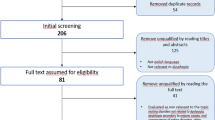Abstract
The incidence of dysphagia in the population with mental health disorders may be higher as a result of a number of factors including the nature of the psychiatric disorder, effects of psychiatric medications, co-occurring neurologic conditions, and institutionalization and behavioral changes associated with the mental illness. This study aimed to determine the prevalence of dysphagia among adults with mental health disorders (MHDs) who attend acute and community mental health settings. Sixty attenders at a local area psychiatric service were assessed using a simple swallowing screening test. Subjects presented with a variety of mental health disorders and were attending an acute inpatient unit, day hospital, or long-term care setting. Thirty-two percent of those assessed demonstrated overt signs of oropharyngeal dysphagia. There was an increased prevalence in the inpatient unit (35%); the lowest prevalence of dysphagia was in those attending the day hospitals (27%). Thirty-one percent of those attending long-term care settings also had dysphagic symptoms. Twenty-three percent of individuals with schizophrenia in the total group had oropharyngeal dysphagia; this figure rose to 31% in the inpatient unit. Twenty-seven percent of individuals with bipolar affective disorder (BPAD) demonstrated overt signs of oropharyngeal dysphagia. Each of these individuals with BPAD was in an inpatient setting. The results of this study provide evidence to suggest that there is an increased incidence of dysphagia in those with mental health disorders. Of particular interest is the marked proportion (approximately one third) of those attending acute and long-term care settings with dysphagia. Possible contributing factors are discussed.
Similar content being viewed by others
References
Groher ME, Bukatman R: Prevalence of swallowing disorders in two teaching hospitals. Dysphagia 1:3-6, 1986
Bazemore PH, Tonkonogy J, Ananth R: Dysphagia in psychiatric patients: Clinical and videofluoroscopic study. Dysphagia 6:2-5, 1991
Fioretti A, Glaccotto L, Melega V: Choking incidents among psychiatric patients: retrospective analysis of thirty-one cases from the west Bologna psychiatric wards. Can J Psychiatry 42:515-520, 1997
Hsieh HH, Bhatia SC, Anderson JM, Cheng S: Psychotropic medication and non-fatal café coronary. J Clin Psychopharmacol 6:101–102, 1986
Corcoran E, Walsh D: Obstructive asphyxia: a cause of excess mortality in psychiatric patients. Ir J Psychol Med 20(3):88-90, 2003
Craig TJ: Medication use and deaths attributed to asphyxia among psychiatric patients. Am J Psychiatry 137(11):1366-1373, 1982
Mittleman RE, Wetli CV: The fatal café coronary. JAMA 247(9):1285-1288, 1982
Brandt N: Medications and dysphagia: How do they impact each other? Pathophysiol Suppl 14(5):27-30, 1999
Smithard DG, O’Neill PA, Park C, Morris J: Complications and outcome affect acute stroke; does dysphagia matter? Stroke 27:1200–1204, 1996
Wright P, O’Flaherty L: Antipsychotic drugs: atypical advantages and typical disadvantages. Ir J Psychol Med 20(1):24-27, 2003
Jones P, Buckley P: Schizophrenia. London: Elsevier Science, 2003
Stoschus MD, Allescher HD: Drug-induced dysphagia. Dysphagia 8:154-159, 1993
World Health Organisation: The ICD-10 Classification of Mental and Behavioural Disorders: Diagnostic Criteria for Research. Geneva: WHO, 1993
Crockford C, Smithard DG: The Swallow Test. RCSLT Bull January: 7-8, 1997
Smithard DG, O’Neill PA, Park C, England R, Renwick DS, Wyatt R, Morris J, Martin DF: Aspiration following acute stroke: Incidence and diagnosis. Conference Proceedings of the Second International Conference on Stroke, Geneva: World Federation of Neurology, May 1993, pp 52
Logemann J: Evaluation and Treatment of Swallowing Disorders. Austin, TX: Pro-Ed, 1983
Good-Fratturelli MD, Curlee RF, Holle JL: Prevalence and nature of dysphagia in VA patients with COPD referred for videofluoroscopic swallow examination. J Commun Disord 33:93-110, 2000
Perlman A, Schulze-Delrieu K (eds.): Deglutition and Its Disorders, Anatomy, Physiology, Clinical Diagnosis, and Management. San Diego, CA: Singular Publishing Group, 1997
Warms T, Richards J: “Wet Voice” as a predictor of penetration and aspiration in oropharyngeal dysphagia. Dysphagia 15(2):84-88, 2000
Lane CJ, Ngan ETC, Yatham LN, Ruth TJ, Liddle PF: Immediate effects of risperidone on cerebral activity in healthy subjects: a comparison with subjects with first-episode schizophrenia. J Psychiatry Neurosci 29(1):30-37, 2004
Maxim J, Timothy C: Services for older people in mental health settings. In: France J, Kramer S (eds.): Communication and Mental Illness. London: Jessica Kingsley Publishers, 2001, pp 192-207
Buchholz DW: Oropharyngeal dysphagia due to iatrogenic neurological dysfunction. Dysphagia 10:248-254, 1995
Kaplan MD, Baum BJ: The functions of saliva. Dysphagia 8(3):225-229, 1993
Poncelet AN: An algorithm for the evaluation of peripheral neuropathy. Available at http://www.aafp.org/afp/ 980215ap/poncelet.html [accessed August 20, 2002]
Vogel D, Carter JE: The Effects of Drugs on Communication Disorders. San Diego, A: Singular Publishing Group, 1995
Hamilton A: General psychiatry. In: France J, Muir N (eds.): Communication and the Mentally Ill Patient. London: Jessica Kingsley Publishers, 2001, pp 181-191
Robbins J: Normal swallow and ageing. Semin Neurol 16(4):309-317, 1996
Acknowledgments
The authors thank the study participants and Dr. Paula McKay and Dr. Brian Parsons for reviewing the medication regimens of the participants in the study. In addition, the support of staff from Dublin West/Southwest Mental Health Service, South Western Area Health Board, Dublin, in completion of this work is warmly acknowledged.
Author information
Authors and Affiliations
Corresponding author
Rights and permissions
About this article
Cite this article
Regan, J., Sowman, R. & Walsh, I. Prevalence of Dysphagia in Acute and Community Mental Health Settings. Dysphagia 21, 95–101 (2006). https://doi.org/10.1007/s00455-006-9016-9
Published:
Issue Date:
DOI: https://doi.org/10.1007/s00455-006-9016-9




